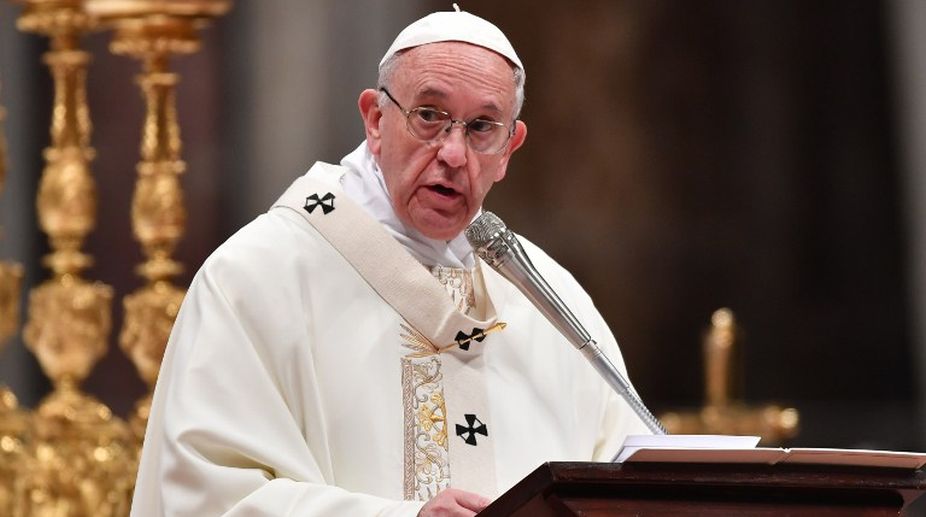
Pope Francis has told world financial chiefs that poor countries hit by the economic impact of the coronavirus need to have their debt burden reduced and be given a greater say in global decision making.
In a letter to the participants of the International Monetary Fund and World Bank’s annual spring meeting, the pope said the pandemic had forced the world to come to terms with interrelated socio-economic, ecological, and political crises.
“The notion of recovery cannot be content to a return to an unequal and unsustainable model of economic and social life, where a tiny minority of the world’s population owns half of its wealth,” the pontiff said in the letter dated April 4.
He called for a new “global plan” that “necessarily means giving poorer and less developed nations an effective share in decision-making and facilitating access to the international market.”
A spirit of global solidarity “demands at the least a significant reduction in the debt burden of the poorest nations, which has been exacerbated by the pandemic,” he said.
Financial chiefs of the Group of 20 large economies on Wednesday extended a suspension of debt servicing costs for developing countries but fell short of cancelling debt or expanding debt relief as requested by non-profit organisations.
Financial markets need to be underpinned by laws and regulations that ensure they work for the common good, the pope said, calling for “a justly financed vaccine solidarity.”
“We cannot allow the law of the marketplace to take precedence over the law of love and the health of all,” he said.
With inoculation campaigns in poor African countries lagging far behind those of the rich world, particularly the United States and Britain, the pope appealed to political and business leaders to provide “vaccines for all, especially for the most vulnerable and needy.”

